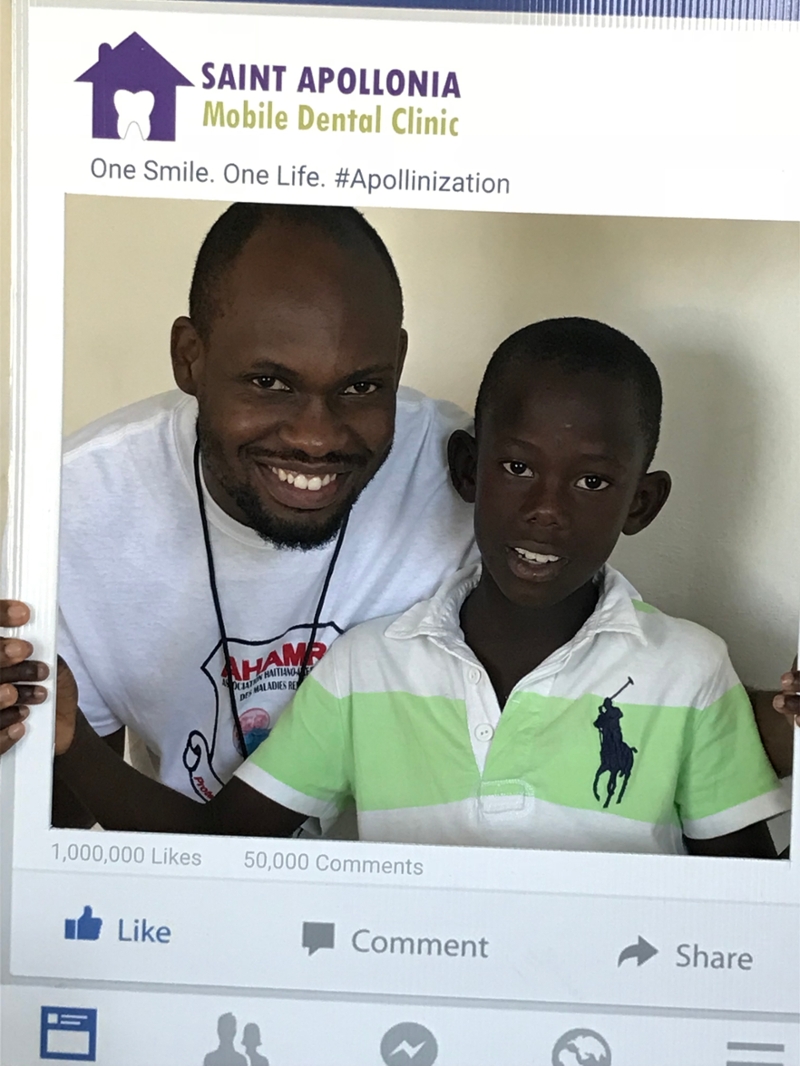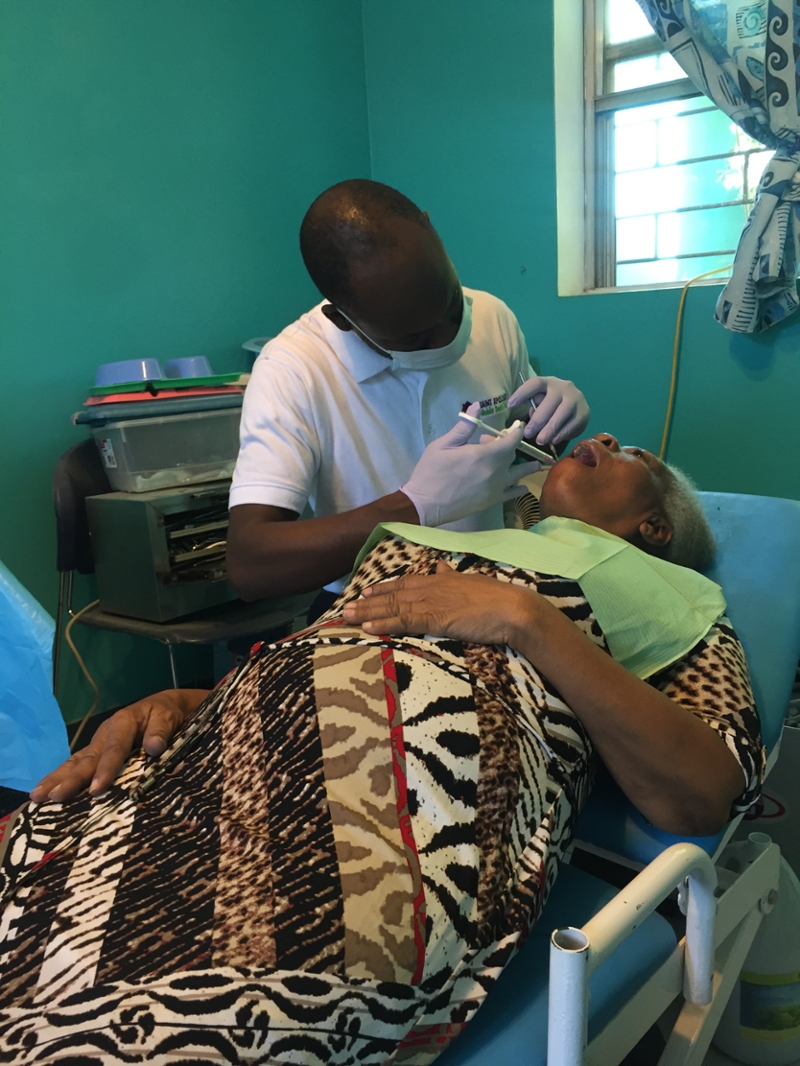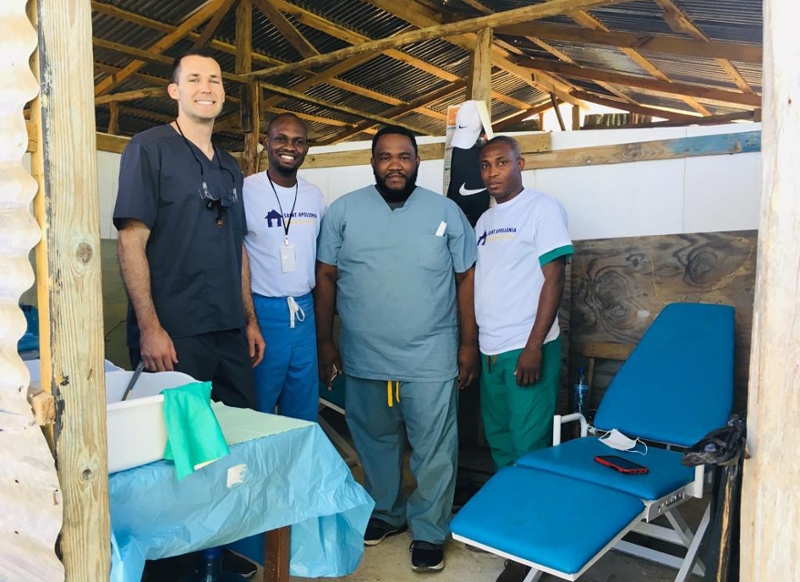by Karen Shih

On the island country of Haiti, just 300 or so dentists exist to serve a population of nearly 11 million. It isn’t unusual for people like Lesly Joseph, MS GHPM’16, who grew up in the rural town of Ouanaminthe, to go his entire childhood without accessing dental services.
“There’s a gap between the needs of the population and the specialists who can treat them,” says Joseph. “I felt the need to help people who can’t afford it.”
That’s why Joseph chose not only to become a dentist himself, but to create the Saint Apollonia Mobile Dental Clinic, which has served more than 1,500 people since he co-founded it in 2016.
His experience at the Heller School as a Fulbright Scholar in the Global Health Policy and Management program inspired him to launch the mobile clinic, he says. It pushed him to think bigger than just working one-on-one with patients.
Heller, he says, “offered unique insight about global health: It has a specific point of view in terms of addressing access, especially in developing nations. This was important because I wanted to go back to my country and apply what I learned.”
When Joseph returned to Haiti, he started working for an NGO and took a position teaching at the State University of Haiti’s School of Dentistry. But he knew he could do more to address access to dental care—so he worked with colleagues to start the mobile clinic.
“Most dentists have their clinics in the capital of Port-au-Prince, leaving a lot of the population without access to dental care,” he says. “I thought if we can create a mobile dental clinic, going from community to community, city to city, we can address this gap.”
The clinic offers prevention services like cleanings, fluoride varnish applications and dental education for kids through puppet shows, as well as basic treatments like extractions and fillings.

Access to dentistry is important for three main reasons, Joseph says.
“First, there’s a relationship between teeth and gum disease and other diseases in the body, like heart disease. There’s also a connection to low-weight babies and pre-term birth. Second, there’s the psychological aspect. When people have bad teeth, they lose confidence, so it’s hard for them to talk in public. Third, there’s a relationship between teeth and nutrition. If you have bad teeth, you can’t eat very well, so the body will suffer.”
Joseph and his team started with a truck and some donated equipment, but it was a challenge to set everything up without reliable power sources in the communities. Thanks to a recent donation, they were able to purchase a van out of which they can operate more effectively.
The community members “are very grateful,” he says. “Some people can’t smile because they have decaying front teeth. When you take care of it, put in composite and make it beautiful, they can smile again.”
The mobile dental clinic is partially funded by partner organizations like Dental Aid Project, as well as by small fees from the community. Since it’s primarily volunteer-run, they offer just one or two clinics per month, but he hopes to expand and buy more vans so they can serve more people.
As Joseph and his team work toward sustainable funding, they’re thinking big: “We want to have the largest mobile dental clinic on the American continent.”

